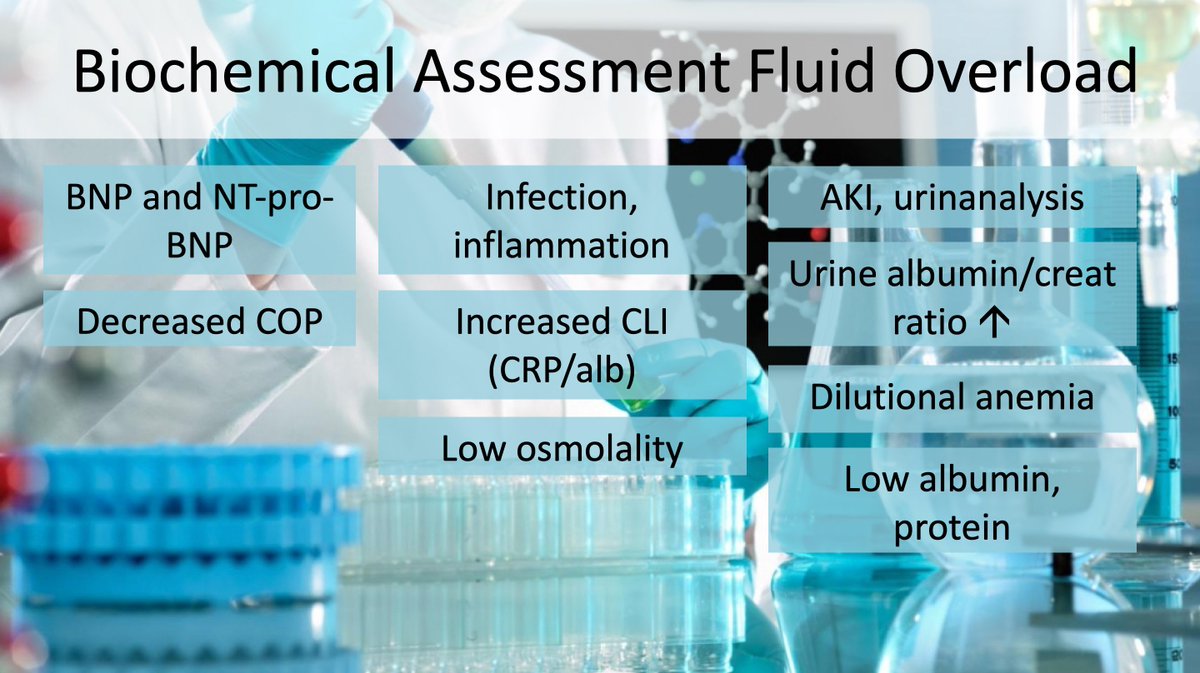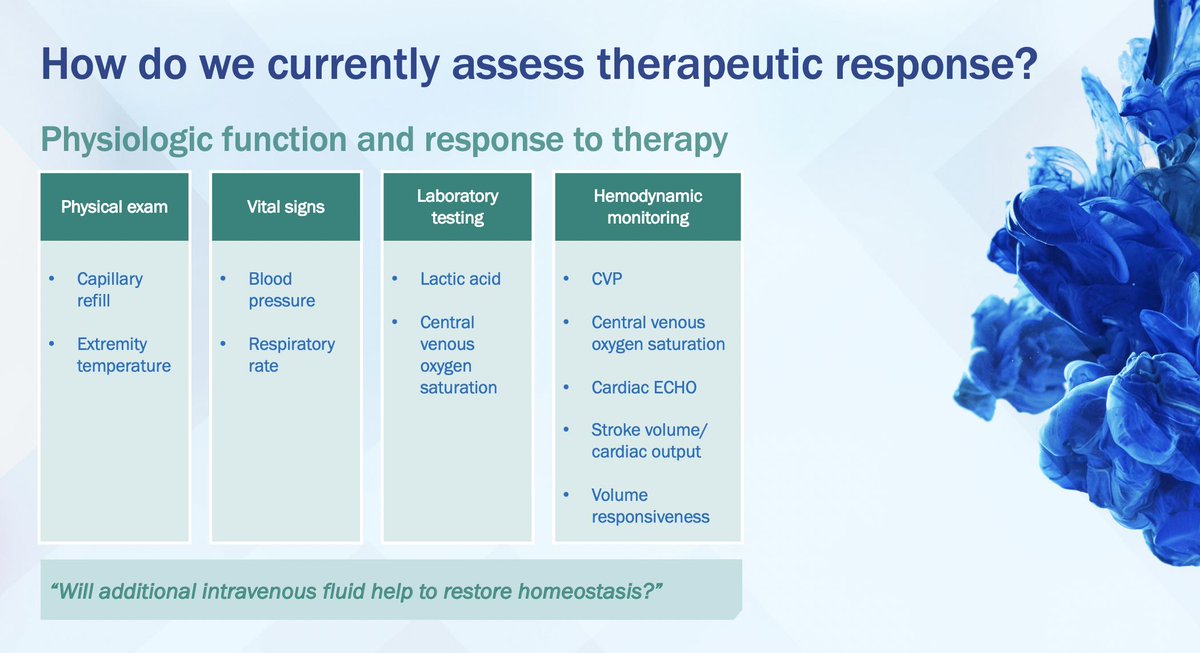Discover and read the best of Twitter Threads about #ISICEM19
Most recents (5)
Evaluating volume status and fluid responsiveness - what is new in 2019? by @PrXaMonnet #ISICEM19
fluid challenge
mini-fluid challenge
SVV, PPV
IVCCI
EEO
recruitment maneuver
passive leg raise => less reliable during abdominal hypertension
fluid challenge
mini-fluid challenge
SVV, PPV
IVCCI
EEO
recruitment maneuver
passive leg raise => less reliable during abdominal hypertension
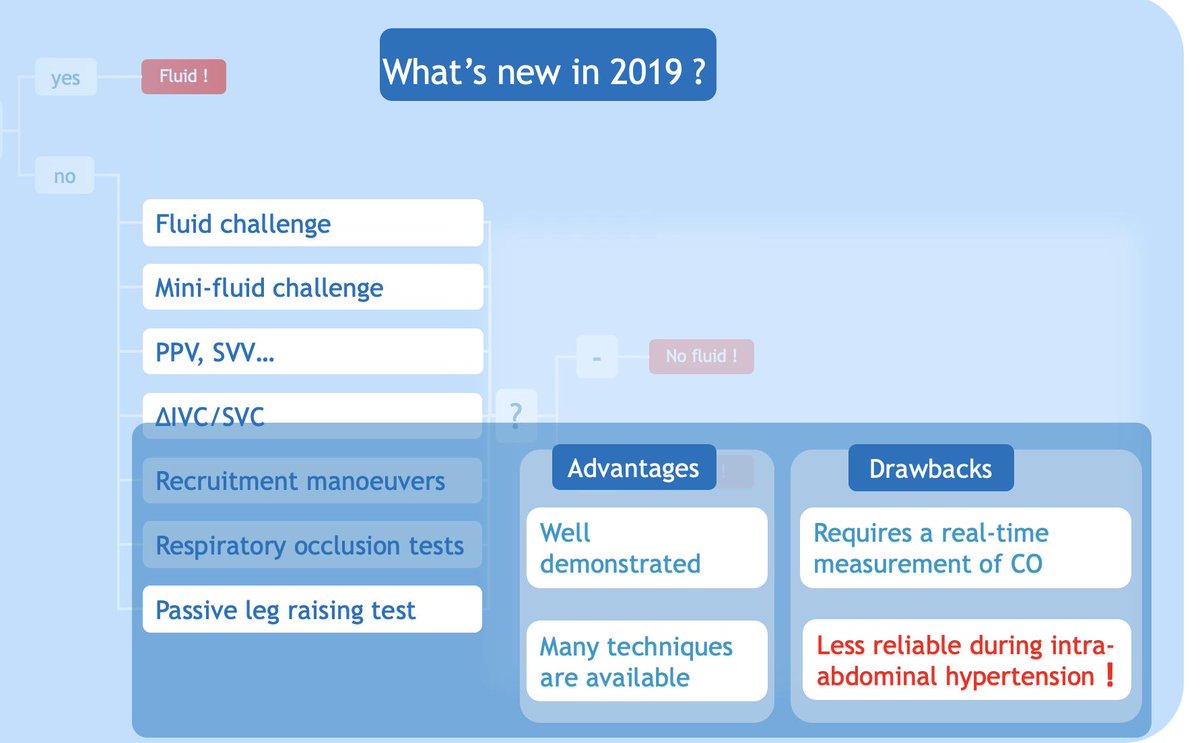
The question is: How to achieve the right balance
not too much
not too little
just enough
excellent talk by #NateShapiro
#ISICEM19


not too much
not too little
just enough
excellent talk by #NateShapiro
#ISICEM19
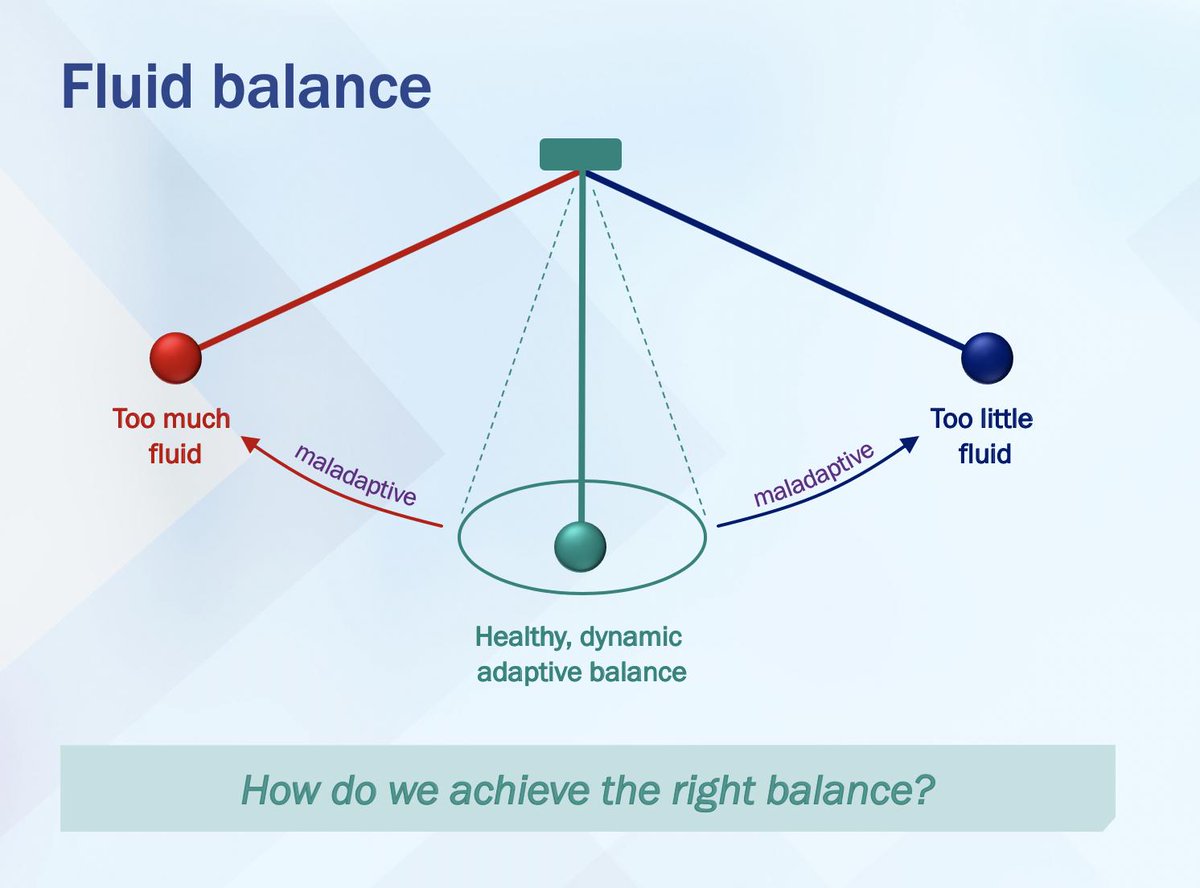
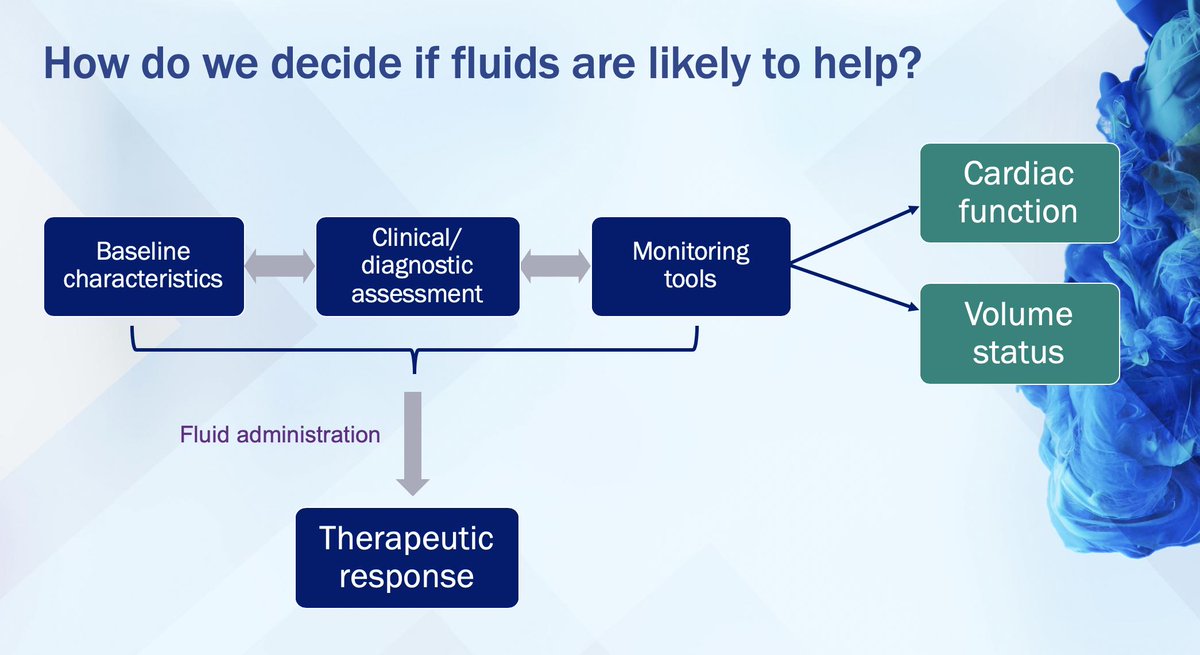
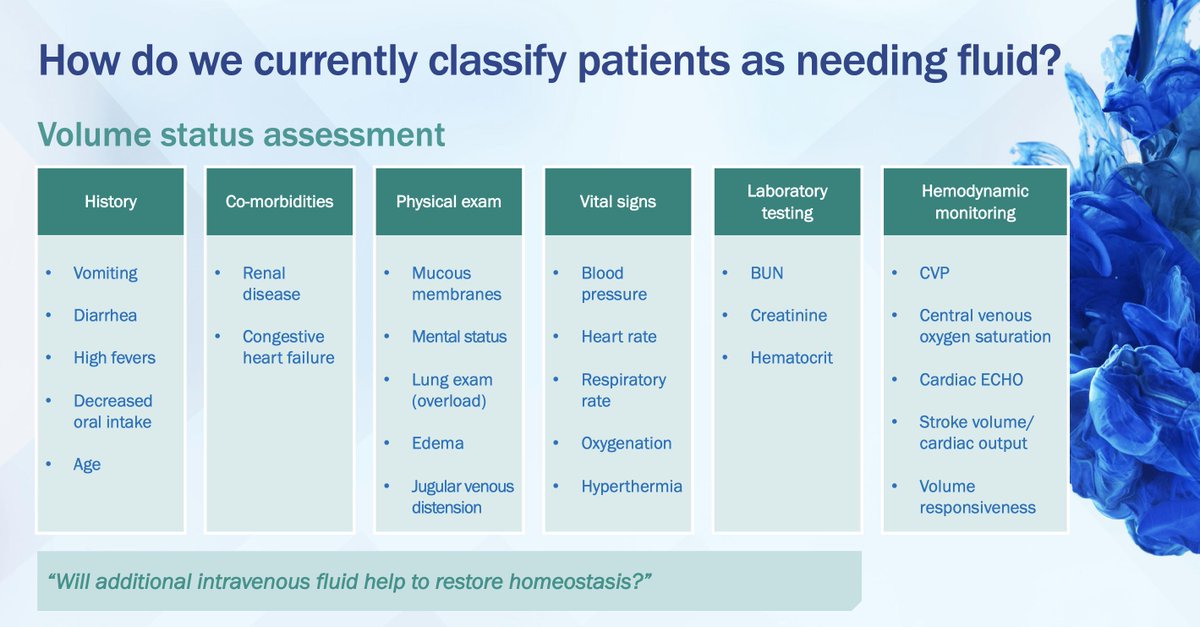
interesting mortality prediction model presented by #NateShapiro looking at a fluid propensity model predicting when we need to give more or less fluids
Bottom line: mortality increases with too little or too much fluids
#ISICEM19


Bottom line: mortality increases with too little or too much fluids
#ISICEM19
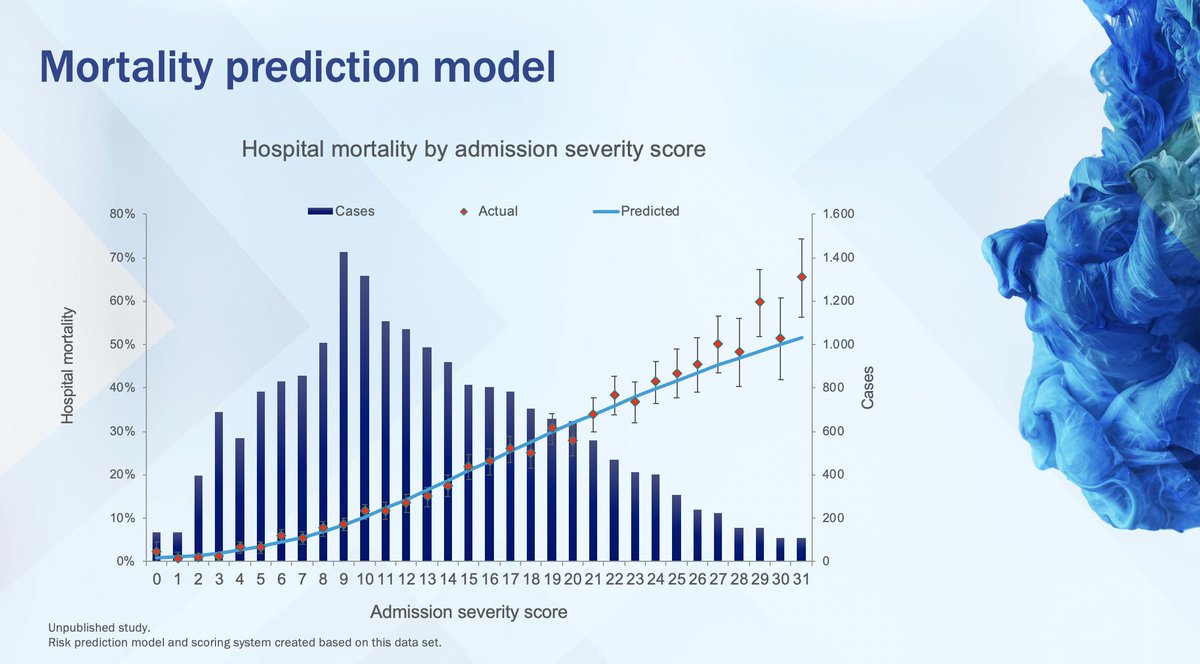
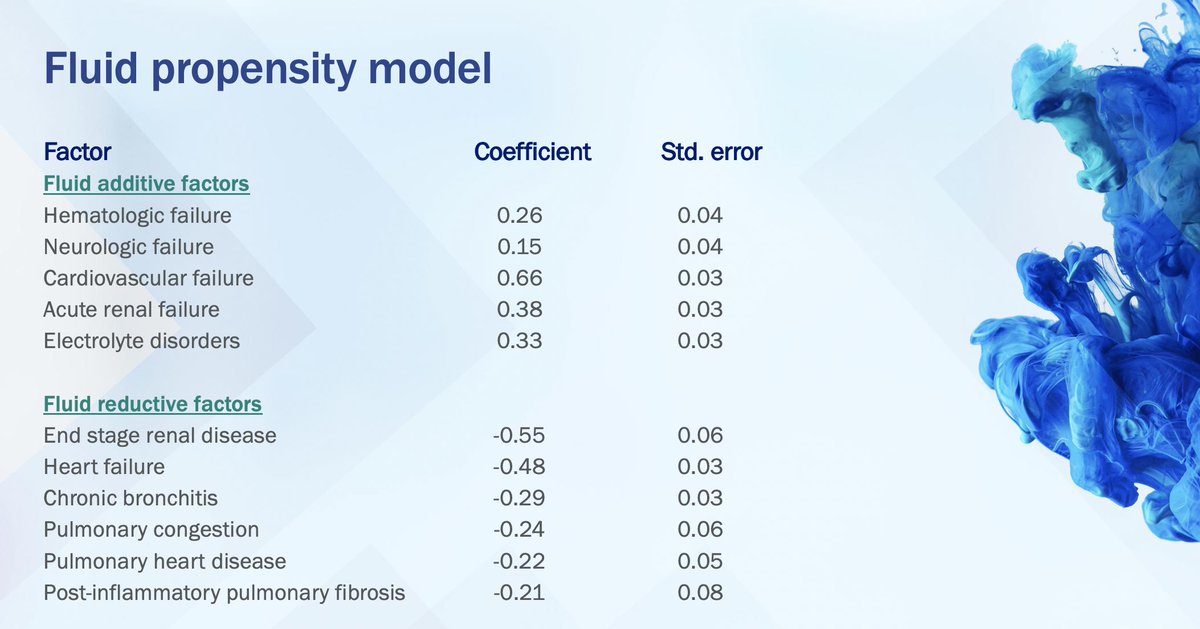
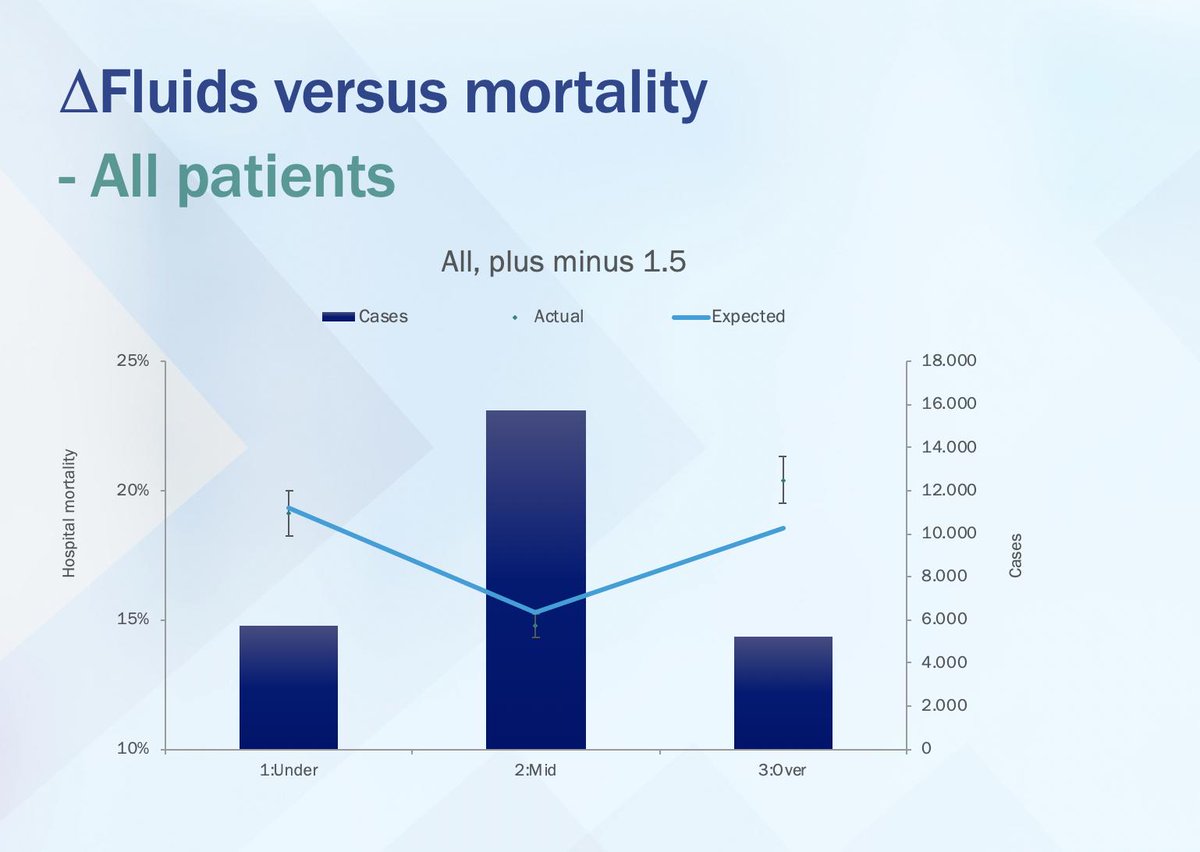
There are many advantages of continuous IAP measurement as listed in infographic #ISICEM19 
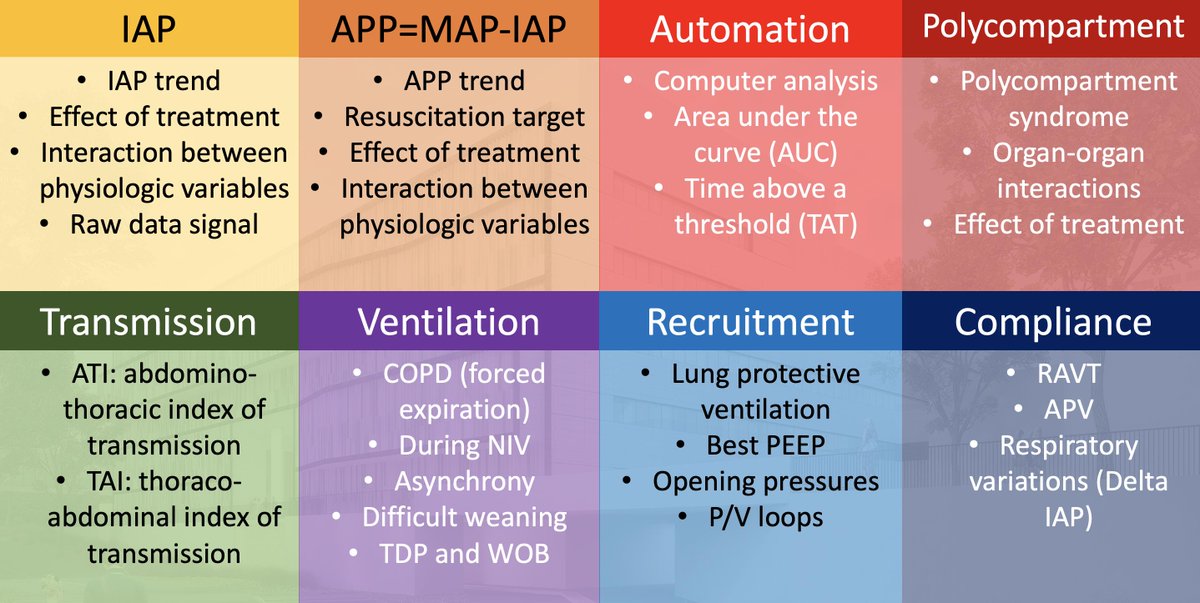
Start measuring IAP (abdominal pressure) in ICU patients when there are 2 or more risk factors related to
-increased intra-luminal contents
-increased intra-abdominal contents
-decreased compliance
-fluid overload and capillary leak
#ISICEM19
-increased intra-luminal contents
-increased intra-abdominal contents
-decreased compliance
-fluid overload and capillary leak
#ISICEM19
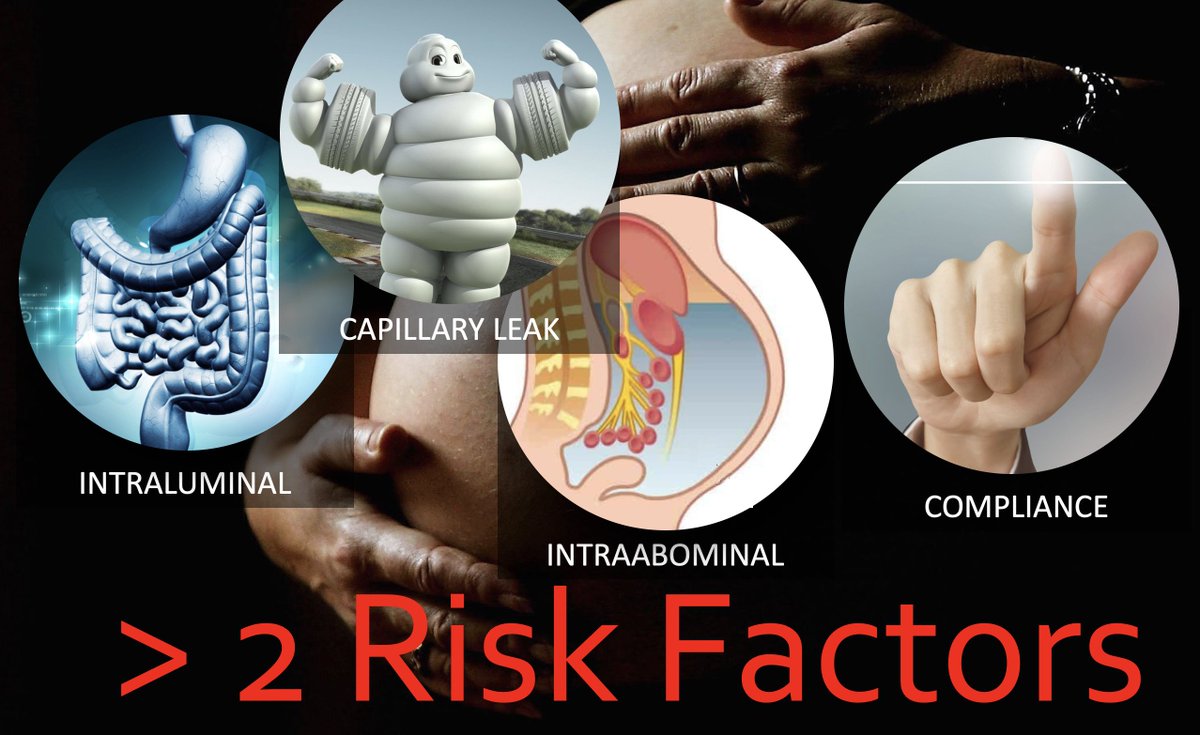
Some causes of increased intra-luminal contents resulting in abdominal hypertension #ISICEM19 
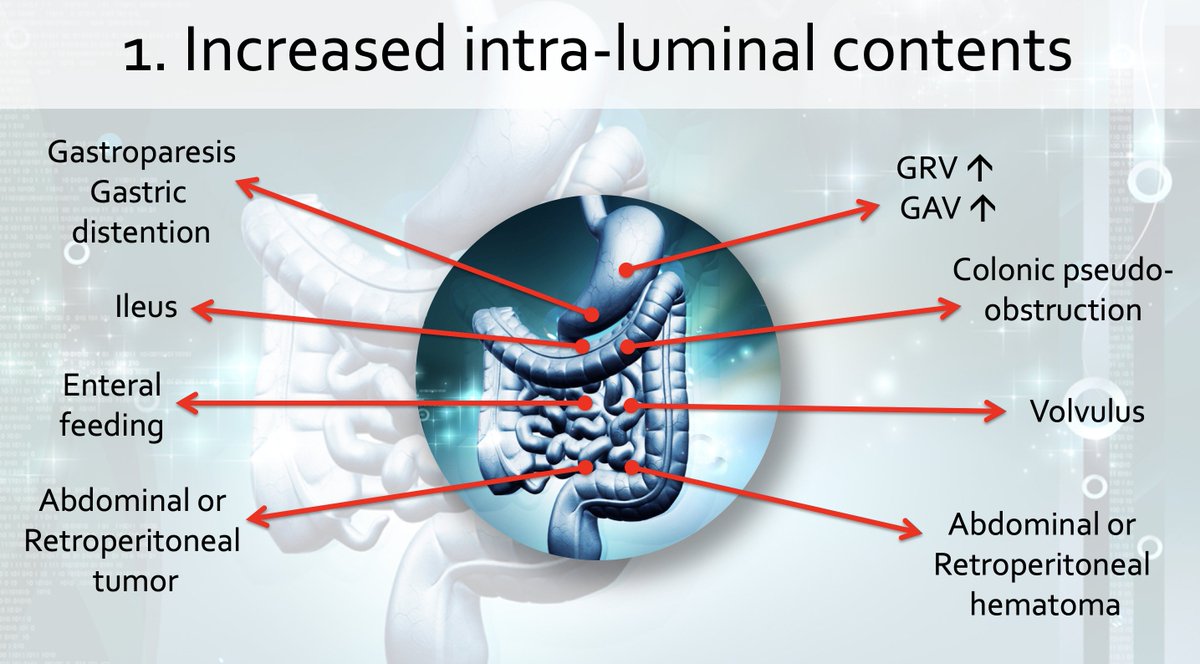
Thrilling to see so much focus on #sepsis endotyping and reducing heterogeneity at #ISICEM19 @ISICEM! For the non-expert, perhaps a brief review is helpful: /1
Lots of prognostic tools for #sepsis exist, and many are well-validated. Although endotypes often show outcomes differences at baseline, they are NOT for outcomes prediction! Purpose-built tools and biomarkers are better for this. /2
Instead, the goal of #sepsis endotyping is PREDICTIVE enrichment, by which we mean, predicting which patients will respond favorably to a given drug (classically an immunotherapy). Since no drug has ever been shown to work in the broad sepsis population, the idea is that /3
Assessment of Fluid Overload and Hypervolemia (1/8)
Clinical assessment and signs for #FO are aspecific and unreliable:
-pitting edema
-ascites
-positive fluid balance
-orthopnea
-hepatojugular reflux
-...
Preparing for #smacc #ISICEM19 #IFAD2019 #WCACS2019
Clinical assessment and signs for #FO are aspecific and unreliable:
-pitting edema
-ascites
-positive fluid balance
-orthopnea
-hepatojugular reflux
-...
Preparing for #smacc #ISICEM19 #IFAD2019 #WCACS2019
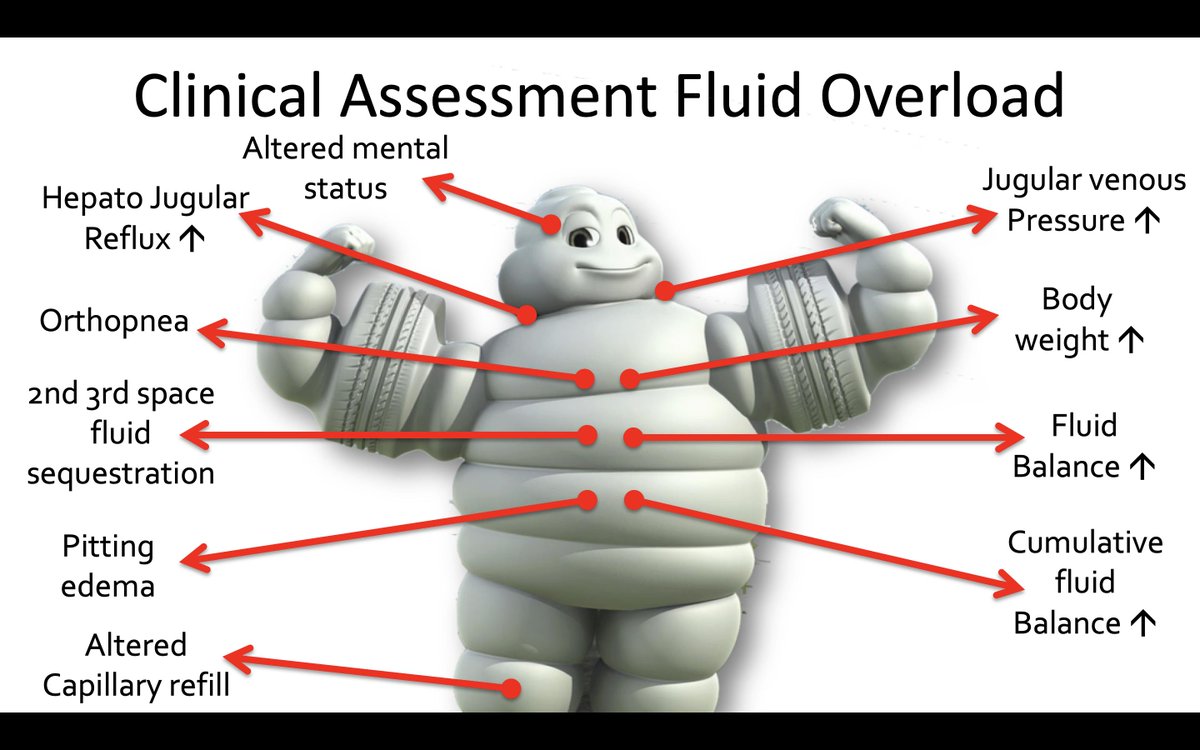
Assessment of Fluid Overload and Hypervolemia (2/8)
Biochemical Assessment for #FO is aspecific and unreliable:
-Hypoalbuminemia
-Hypoproteinemia
-low COP
-low osmolality
-...
Preparing for #smacc #ISICEM19 #IFAD2019 #WCACS2019
Biochemical Assessment for #FO is aspecific and unreliable:
-Hypoalbuminemia
-Hypoproteinemia
-low COP
-low osmolality
-...
Preparing for #smacc #ISICEM19 #IFAD2019 #WCACS2019
